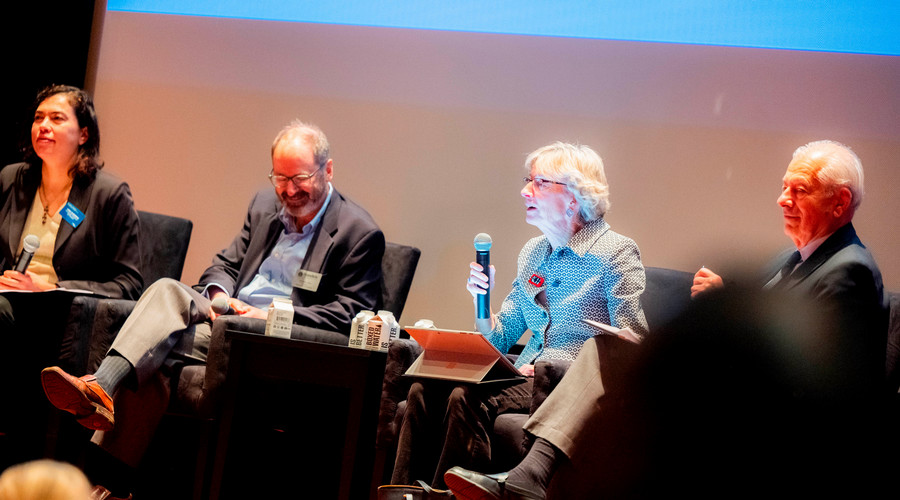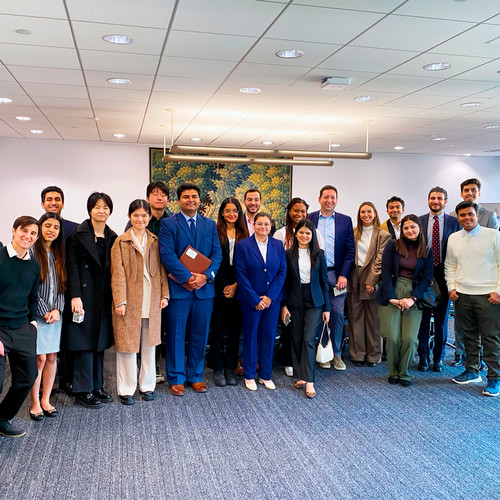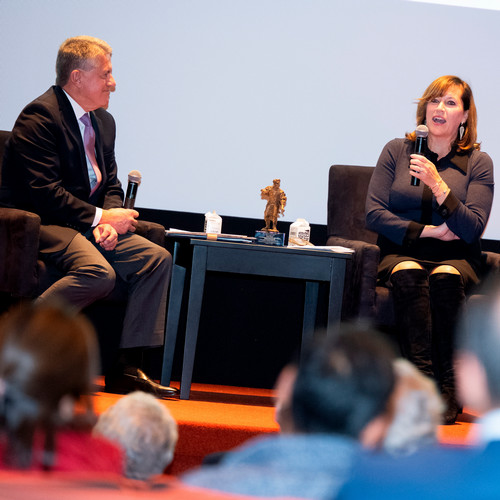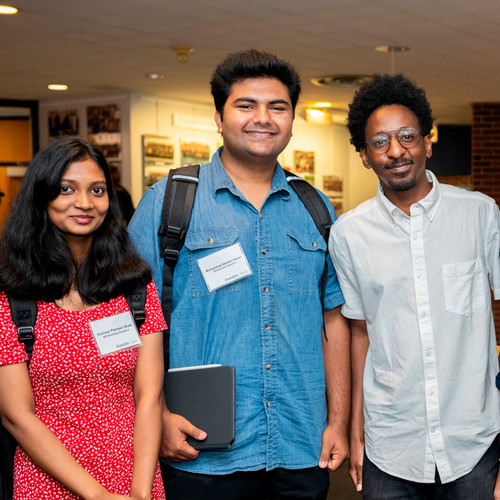Peter Petri is an optimist.
There’s plenty of gloom associated with the global economy, but the Carl Shapiro Professor of International Finance at Brandeis International Business School can't help but get excited when he thinks about new innovations on the horizon.
“Technology really is the future and it gives us these opportunities we haven’t had for a couple generations,” said Petri, speaking at an event celebrating
Brandeis University’s 75th anniversary. “There should be a way to capitalize on that. If we can get ourselves over worrying about what other countries are going to do to us and learn to work together with these technologies, it will do wonders for growth around the world.”
Petri spoke on a panel also featuring
George Hall, the Fred C. Hecht Professor of Economics at the International Business School, and Catherine Mann, an external member of the Monetary Policy Committee at the Bank of England. The conversation was moderated by International Business School Prof.
Anna Scherbina.
Hall focused on fiscal policy and government deficits. He said big spending was necessary during the economic emergency of the COVID-19 pandemic, but that now is the time to raise taxes, cut spending and budget more prudently.
“We’re now in a position where the federal government has made three sets of promises: First, robust government spending for at least the next 10 years. Second, with relatively low taxes for the next 10 years. And third, with a high return for the holders of over $3 trillion in U.S. Treasury debt,” said Hall. “It’s hard to see how all three of these promises will be kept over the next decade. At least one, if not all three, will have to be adjusted and revising these promises will be painful.”
Focusing on inflation, Mann said The Great Moderation, where inflation was low and stable from about the late 1980s through 2020, likely is over because we are entering a more volatile stretch of history.
“We are going to be looking at a period of many more shocks, not only the tragic ones that we are currently experiencing, but a longer-term one in terms of climate change,” said Mann. “This world of increasing volatility means higher associated costs and prices, and that increased volatility implies higher interest rates by central banks in order to incorporate the risk.”
Petri focused on global trade. He noted that the international trade system in place since the end of World War II — defined by low trade barriers and international bodies to mediate disputes — is unraveling as countries raise tariffs and split into rival factions.
“My sense is, as I try to be optimistic, nothing is collapsing right now, but we are very close to giving up something that has been enormously valuable for nearly a century,” said Petri. “We know what is going away, but we don’t know what is coming next.”




